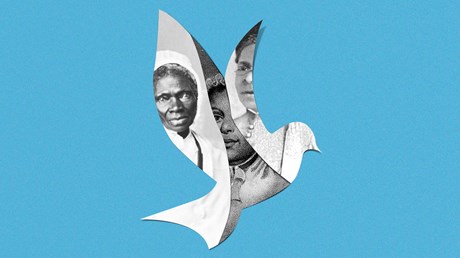What Zilpha Elaw, Julia Foote, and Sojourner Truth taught me about God’s “withness.”

A Methodist woman in Albany, New York, didn’t want to go hear Zilpha Elaw preach. For one thing, Elaw was a woman, and that seemed “unbecoming.” To make matters worse, Elaw was Black, and that violated a sense of propriety and decorum. She didn’t want to go. But her husband persuaded her, and when she heard Elaw preach, she was convicted by the power of the Holy Spirit.
As Elaw recorded in her memoirs, the woman experienced a “quickening,” and “the word was effectually sown in her heart.” She experienced a kind of illumination and was able to read the Scriptures in a way she never had before. For Elaw, that was critical evidence of the work of the Spirit. “The Scriptures become as a new volume,” she wrote, and “develop new and surprising truths to the regenerate soul.” It is almost as if the person reading the Bible is reading alongside God—reading with the Spirit.
As I have read and studied the theology of Black women preachers in the 19th century, I’ve been struck by their pneumatology, their understanding of how the Holy Spirit breathes and blows in the lives of believers. Again and again, women like Elaw bore witness to the withness of the Spirit.
The term withness is not one that 19th-century Black women pastors would use. Yet this idea is demonstrated in their theology and in their lives and ministries. Alfred North Whitehead, a mathematician writing in the 1920s, used the word withness to speak of the body as the source and beginning of knowledge. Relying on the philosophies of David Hume and Rene Descartes, he was trying to interrogate our common understandings of how we know what we know. He argued we know things not just with our minds ...
from Christianity Today Magazine
Umn ministry


.gif)

.gif)
.gif)
